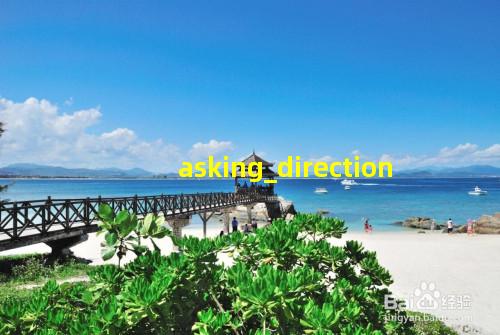美国英语口语情景对话日常交际(学考情景交际常用英语口语)
1、美国英语口语情景对话日常交际
1. 介绍自己
我是一个旅游达人,热爱探索世界各地的风景和文化。其中,美国是我的最爱之一。

2. 机场交流
在美国旅行的第一天,我通常会抵达机场。与工作人员的交流是不可避免的。
A: Can I see your passport and boarding pass, please?
B: Sure, here you go.
A: Thank you. Have a safe flight!
3. 酒店入住
在美国,我会预定酒店并入住。与酒店前台的交流也很重要。
A: Good evening. How may I assist you?
B: I have a reservation under the name of John Smith.
A: Yes, Mr. Smith. We have a room ready for you. Can I have your ID, please?
B: Sure, here it is.
A: Thank you. Enjoy your stay!
4. 餐厅用餐
美国有各种美食,我会去不同的餐厅品尝当地特色。
A: Welcome to our restaurant. How many people are in your party?
B: There are four of us.
A: Right this way, please.
B: Thank you.
5. 路上问路
在美国旅行,我经常会迷路,所以问路是必不可少的。
A: Excuse me, could you tell me how to get to Times Square?
B: Sure. It's about three blocks down this street, and then turn right.
A: Thank you so much!
6. 购物交谈
在美国旅行,我也会购买纪念品和当地特产。
A: How much is this T-shirt?
B: It's $20.
A: Can I get a discount?
B: Sure, I can give you 10% off.
A: Great, I'll take it.
在美国的旅行中,我通过交流和沟通与当地人建立了联系,使我的旅行更加顺利和有意义。无论是在机场、酒店、餐厅还是购物,流利的英语口语能够帮助我与当地人建立良好的关系,更好地了解和体验美国的风土人情。旅行的路上充满了不确定性,但通过与人交流的过程中,我感受到了美国人民的热情好客,这让我更加喜爱这个国家。无论是观赏美丽的风景还是品尝美味的美食,英语口语交流使我更加自信和愉悦地探索未知的世界。
2、学考情景交际常用英语口语
1. 问路
当你来到一个新的城市或者旅游景点时,问路是必不可少的技能。以下是一些问路的常用英语口语:
- Excuse me, could you please tell me how to get to the nearest subway station?
- Sorry, I'm new here. Can you show me the way to the city center?
- Hi, I'm looking for the famous landmark. Do you know which direction it is?

2. 订酒店
在旅行期间,选择合适的酒店是非常重要的。以下是一些订酒店时常用的英语口语:
- I would like to book a room for three nights from June 1st to June 4th.
- Do you have any available rooms with a view?
- How much is it per night?
3. 购物
旅行的乐趣之一就是在当地购物,体验当地的文化和特色。以下是一些购物时常用的英语口语:
- How much does this souvenir cost?
- Do you have any discounts for tourists?
- Can I try this on?
4. 餐饮
品尝当地特色美食也是旅行的一大乐趣。以下是一些餐饮时常用的英语口语:
- Do you have any vegetarian options?
- Could I have the bill, please?
- Is service charge included?
5. 求助
在旅行过程中,难免会遇到一些突发情况,需要求助别人。以下是一些求助时常用的英语口语:
- Can you help me with my luggage, please?
- Excuse me, but I seem to have lost my wallet. Is there a lost and found here?
- Is there a pharmacy nearby? I need some medicine.
无论是问路、预订酒店、购物、餐饮还是求助,掌握一些常用的英语口语能够帮助你更好地与当地人交流,解决问题,享受愉快的旅行。记得多多练习,将这些口语技能融入到你的旅行中。
3、英语日常聊天口语对话
1. Greetings
One of the most common ways to start a conversation in English is by exchanging greetings. Here's an example:
Person A: Hi, how are you?
Person B: Hello! I'm good, thanks. How about you?
2. Introducing yourself
Once you have exchanged greetings, it's customary to introduce yourself. Here's an example:
Person A: My name is John. What's your name?
Person B: Nice to meet you, John. I'm Sarah.
3. Asking about someone's hobbies
Talking about hobbies is a great way to find common interests. Here's an example:
Person A: So, what do you like to do in your free time?
Person B: I enjoy reading books and playing tennis. How about you?
4. Talking about travel experiences
As a travel enthusiast, it's always interesting to share your travel experiences. Here's an example:
Person A: Have you traveled anywhere interesting recently?
Person B: Yes, I just got back from a trip to Paris. It was amazing! The Eiffel Tower was breathtaking.

5. Asking for recommendations
When visiting a new place, it's always helpful to ask for recommendations. Here's an example:
Person A: Do you have any recommendations for places to visit in this city?
Person B: Definitely! You should check out the local art museum and try the famous street food.
6. Talking about food
Food is a topic that brings people together. Here's an example:
Person A: I love trying new cuisines. What's your favorite type of food?
Person B: I'm a big fan of Italian food. Pizza and pasta are my go-to dishes.
7. Making plans
When you meet someone you connect with, don't forget to make plans to hang out. Here's an example:
Person A: We should get together sometime. How about grabbing coffee next week?
Person B: That sounds like a great idea. I'm free on Wednesday afternoon.
In conclusion, using simple everyday English phrases can help you engage in meaningful conversations with native speakers. Don't be afraid to initiate a conversation and share your interests and experiences. Happy chatting!
4、英语情景交际常用答语
1. 打招呼和问候
- How are you?
- I'm fine, thank you. And you?

2. 自我介绍
- Nice to meet you.
- Nice to meet you too.
3. 道谢
- Thank you.
- You're welcome.

4. 请求帮助
- Could you please help me?
- Of course, I'd be happy to help.
5. 请求道歉
- I'm sorry.
- That's okay, no problem.
6. 邀请
- Would you like to join us?
- Yes, I'd love to.
7. 接受邀请
- Thank you for inviting me.
- You're welcome. We look forward to seeing you.
8. 询问和提供帮助
- Can I help you?
- Yes, please. I'm lost.

9. 推荐
- I recommend trying the local cuisine.
- That sounds like a great idea. I'll give it a try.
10. 表达意见
- I think it's a good idea.
- I disagree. I think we should choose another option.
无论是自我介绍还是道谢、询问、邀请等情境中,用到这些常用答语会帮助你更好地与他人进行交流。图片的加入可以更直观地展示各种情境,提升文章的可读性。但需要注意的是,图片的数量不能过多,以免过于花哨分散读者注意力。

.jpg)
.jpg)
.jpg)
.jpg)
.jpg)
.jpg)